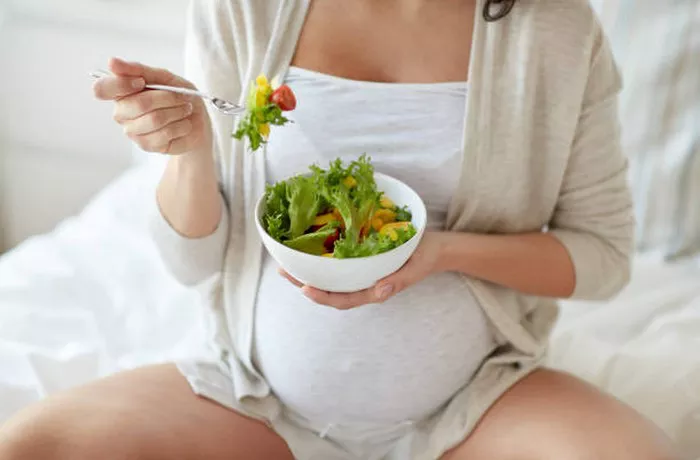Pregnancy is a time of profound change, requiring increased nutrient support to ensure the health of both mother and baby. The need for specific vitamins becomes especially critical as they help support fetal growth, organ development, and the mother’s overall health. This article outlines seven essential vitamins for pregnant women, explaining why each is important, the role they play in pregnancy, and safe dosage considerations.
7 Essential Vitamins For Pregnant Women
1. Folic Acid
Folic acid, also known as folate, is a B vitamin that is essential for fetal development. It helps to prevent birth defects of the brain and spine, such as spina bifida. Pregnant women are advised to take 400-800 micrograms of folic acid daily, starting before conception and continuing throughout pregnancy. Good sources of folic acid include leafy green vegetables, fortified cereals, and beans.
2. Iron
Iron is an essential mineral that is needed to make hemoglobin, the protein in red blood cells that carries oxygen to the body’s tissues. During pregnancy, a woman’s blood volume increases significantly, and her body needs more iron to support the growth of the fetus. Pregnant women are advised to consume 27 milligrams of iron daily. Good sources of iron include red meat, poultry, fish, fortified cereals, and beans.
3. Calcium
Calcium is essential for the development of the fetal skeleton, as well as for maintaining the mother’s bone health. Pregnant women are advised to consume 1,000-1,300 milligrams of calcium daily. Good sources of calcium include dairy products, fortified orange juice, and leafy green vegetables.
4. Vitamin D and DHA
Vitamin D, particularly vitamin D3, is essential for preventing premature birth and conditions like gestational hypertension and diabetes. The recommended daily supplement dosage is between 400-600 IU, not exceeding 2000 IU. DHA, an omega-3 fatty acid, is vital for the baby’s brain and retina development, and it is recommended that pregnant and nursing mothers consume at least 200 mg of DHA daily.
5. Vitamin C
Vitamin C is an antioxidant that supports immune function and helps the body to absorb iron. Pregnant women are advised to consume 85 milligrams of vitamin C daily. Good sources of vitamin C include citrus fruits, strawberries, kiwi, and tomatoes.
6. Vitamin B12
Vitamin B12 is essential for the proper functioning of the nervous system and the formation of red blood cells. It aids in the absorption of folic acid, and a deficiency can lead to anemia. Pregnant women who consume a balanced diet with animal products are less likely to be deficient in B12, but vegetarian or vegan mothers-to-be may require supplementation under medical guidance.
7. Omega-3 Fatty Acids
Omega-3 fatty acids, specifically EPA and DHA, are important for fetal brain and eye development. Pregnant women are advised to consume at least 200-300 milligrams of EPA and DHA daily. Good sources of omega-3 fatty acids include fatty fish, such as salmon and sardines, and fortified eggs.
What Are The Risks Of Vitamin Deficiency During Pregnancy?
Vitamin deficiency during pregnancy can lead to serious health problems for both the mother and the baby. For example, a lack of folic acid can increase the risk of neural tube defects, while a lack of vitamin D can lead to poor bone development in the baby. To minimize these risks, pregnant women should aim to eat a balanced and varied diet that includes plenty of nutrient-rich foods. They may also need to take vitamin supplements, as recommended by their healthcare provider. Regular prenatal check-ups can help identify any vitamin deficiencies and allow for prompt treatment.
Are There Any Vitamins That Pregnant Women Should Avoid?
While vitamins are essential for a healthy pregnancy, some vitamins should be avoided or taken in moderation. For example, high doses of vitamin A can be harmful to the baby’s development, while excessive vitamin E intake can increase the risk of bleeding. Pregnant women should talk to their healthcare provider before taking any vitamin supplements and follow the recommended dosages. They should also avoid taking supplements that contain herbs or other ingredients that have not been proven safe during pregnancy.
Conclusion
In conclusion, pregnant women require increased intake of several vitamins and minerals to support the growth and development of the fetus. Folic acid, iron, calcium, vitamin D, vitamin C, and omega-3 fatty acids are all essential nutrients that should be included in a pregnant woman’s diet. As always, it’s important to consult with a healthcare professional before starting any new supplement regimen. By following these guidelines, women can ensure they are getting the nutrients they need to support a healthy pregnancy and a healthy baby.
Related Topics:


